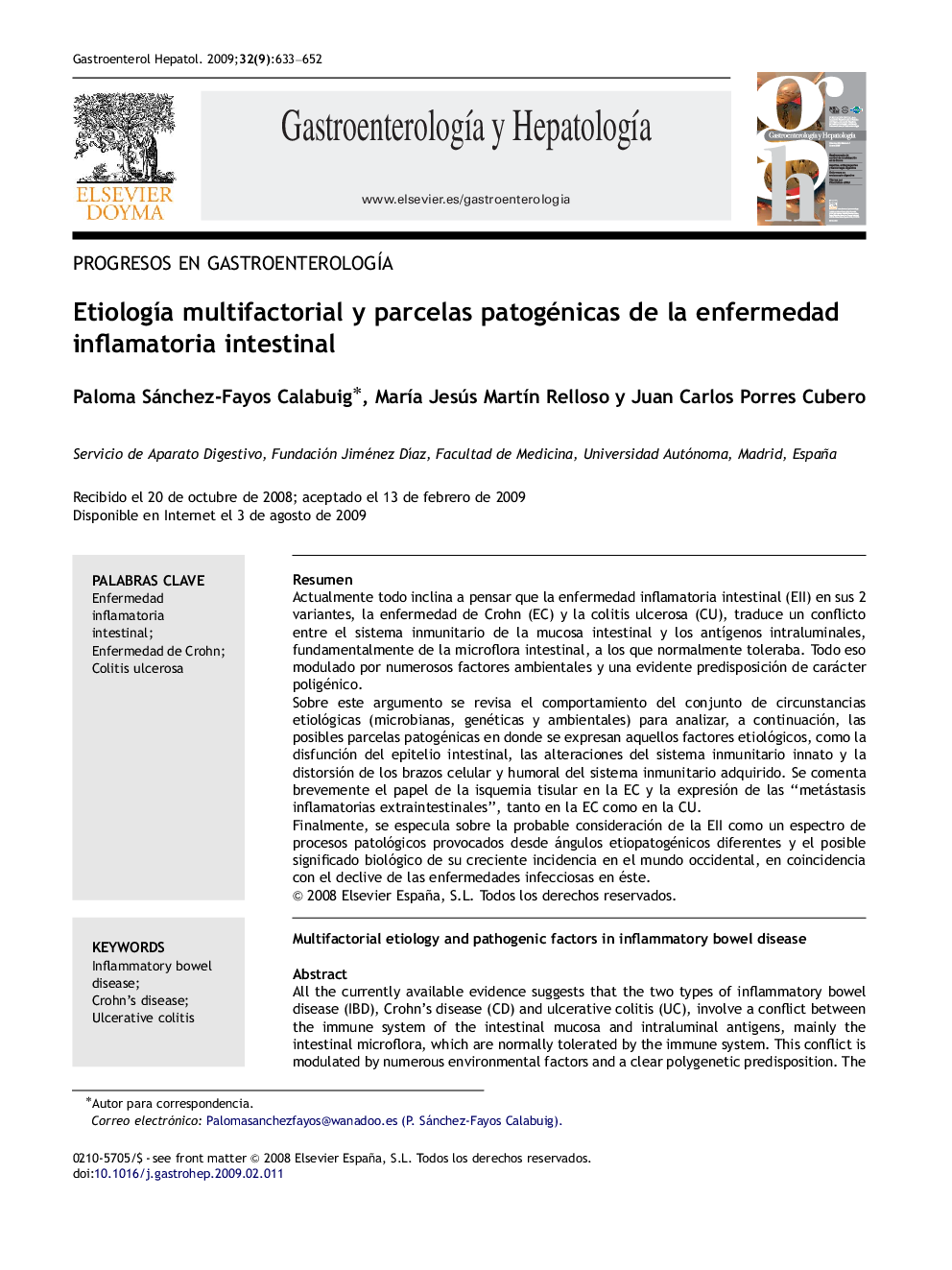| Article ID | Journal | Published Year | Pages | File Type |
|---|---|---|---|---|
| 3288533 | Gastroenterología y Hepatología | 2009 | 20 Pages |
Abstract
All the currently available evidence suggests that the two types of inflammatory bowel disease (IBD), Crohn's disease (CD) and ulcerative colitis (UC), involve a conflict between the immune system of the intestinal mucosa and intraluminal antigens, mainly the intestinal microflora, which are normally tolerated by the immune system. This conflict is modulated by numerous environmental factors and a clear polygenetic predisposition. The present article reviews the behavior of all the etiologic circumstances (microbial, genetic and environmental) and subsequently analyzes the possible pathogenic factors in which the etiologies can be found, namely: dysfunction of the intestinal epithelium, innate immune system alterations, and distortion of the cellular and humoral arms of the acquired immune system. The role of tissue ischemia in CD and expression of “extraintestinal inflammatory metastases”, both in CD and UC, are briefly discussed. Finally, the view that IBD may be a spectrum of pathological processes provoked by distinct etiopathogenic factors and the possible biological significance of the growing incidence of this disease in the western world, coinciding with the decline in infectious diseases in this geographical area, are discussed.
Keywords
Related Topics
Health Sciences
Medicine and Dentistry
Gastroenterology
Authors
Paloma Sánchez-Fayos Calabuig, MarÃa Jesús MartÃn Relloso, Juan Carlos Porres Cubero,
